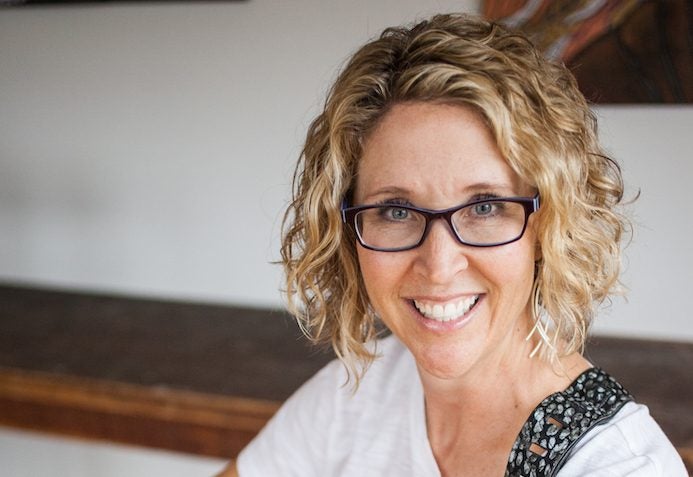Seeking Connection: Curiosity is the cornerstone of mindfulness
Published 12:19 pm Monday, December 30, 2019

- Erin Smith is the owner of the OM place in Winchester, the author of “Sensible Wellness” and the online host of the OM channel. Follow her on Twitter @erinsmithauthor.
“Everything fascinates you, doesn’t it?” Jane smiled.
I had just finished explaining about the myth that cracking your knuckles leads to arthritis (it doesn’t).
She’s right. Everything does fascinate me. In fact, I want my tombstone to read “Be Curious.”
Just this week, I learned it is illegal to carry an ice cream cone in your back pocket in the state of Kentucky. This was intended to curb horse theft, as would-be horse robbers would tuck a scooped cone in their pants to get an untethered horse to follow them home. In theory, the thieves could avoid prosecution because the animal followed them home; they didn’t actually steal the animals.
Another gem I unearthed? Solo synchronized swimming was an Olympic sport from 1984-1992. Solo. Synchronized. Swimming. The “synchronization” was absurdly between the swimmer and the music. Why wasn’t it called swim dancing or aquatic ballet, you ask? Who knows? I wondered that too.
One more. Queen Elizabeth is known for her obsession with cars and her impressive collection of Bentleys, Daimlers and Rolls-Royces. But fewer people know that at age 16, while serving in the army, she became a certified mechanic and can still change a tire, rebuild an engine and drive an ambulance.
If you’re not fascinated by life, you’re not paying attention. Curiosity is the cornerstone of mindfulness; this nuanced emotion cracks open the shell of preconceptions, assumptions, judgments and expectations to allow us to see what is beautiful, interesting and real. When we are interested instead of jaded or apathetic, delight naturally follows.
In the 16th Century, it was vogue in Europe to own a curiosity cabinet, or Wunderkammer, which means wonder room. At this time, the term cabinet referred to an actual room and not yet a piece of furniture. Wunderkammers displayed specimens and ephemera intriguing or interesting: everything from lichens, animal skulls, and rocks to stamps, ancient runic texts and weapons. You could add anything to your collection that you deemed fanciful or fascinating.
Every human on the planet is gifted at birth with his or her own Wunderkammer in the form of an inquisitive mind. We need only access it. Yet we too often take this gift for granted, choose instead to stay mired in core beliefs we are unwilling to challenge or pessimistic thoughts we are indisposed to change.
Curiosity may have killed the cat, but it seems to bring humans to life. Science has revealed, time and again, that curious people are the most content. It isn’t memorizing facts just to pass the test. Curiosity is its own reward. The joy is intrinsic to the activity itself, as when you learn all of the state capitals or finally master the barre chord on the guitar. This short-term delight motivates us to learn even more, snowballing into a life of contented delight.
Understanding is like a constellation. The unknowing mind is like vast, empty blackness. Every time we learn something, it’s a bright star shining in the void. When we finally have enough stars, we start to connect the dots, drawing gorgeous pictures in our mind sky. And the cosmos is infinite. We can never run out of space for new constellations.
Want to flex your curiosity muscle? Eradicate the word boring from your vocabulary. Bored is simply lazy in my book; only uninterested people are bored. As Ellen Parr writes, “The cure for boredom is curiosity. There is no cure for curiosity.” Look around right now at your environment. What do you see that asks a question? I just saw my coffee cup and wondered why it is called a “mug.”
Thirty seconds later, I have discovered that it most likely derives from the Scandinavian mugg, or drinking vessel. In the 17th centuries, muggs were often decorated with crudely drawn human faces with exaggerated features, leading to the slang “mug” as a synonym for an ugly face. So interesting!
Asking questions leads to understanding. Look for the little details that you might have missed if you were looking down into your phone. Strike up conversations with strangers. Jot down questions as they arise to research later. Read something that isn’t on a screen.
Start your Wunderkammer collection today. Life is too short to be bored.
Erin Smith is the owner of the OM place in Winchester, the author of “Sensible Wellness” and the online host of the OM channel. Follow her on Twitter @erinsmithauthor.



